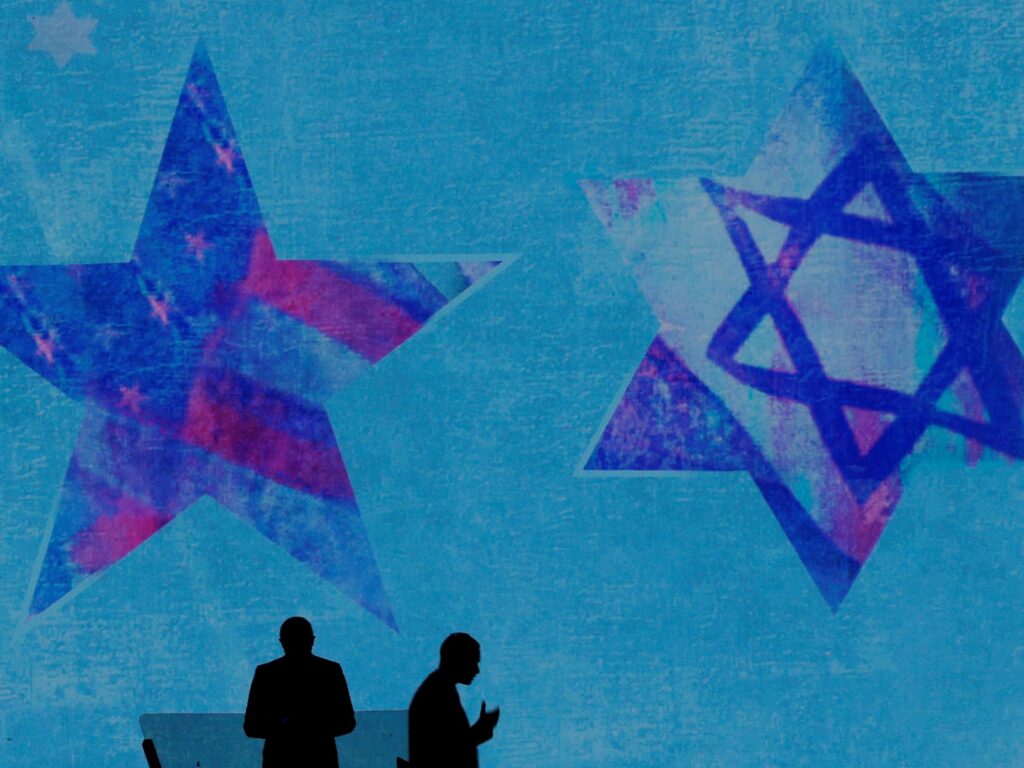Before the end of 2023, US President Joe Biden extended the terms and privileges of duty-free reciprocal trade for Israel on many agricultural products for a period of one year ending on December 31, 2024. A White House statement said that the extension would allow additional time for the two governments to conclude an agreement replacing A trade agreement dating back to 2004 regulates the exchange of agricultural products between the two countries.
A free trade agreement between the United States and Israel has been in place since 1985, and it was the first free trade agreement in which the United States ever entered, and the free trade agreement between the two countries is still in effect.
The United States later signed 20 free trade agreements with countries from various continents, including 3 Arab countries: Jordan, Oman, and Morocco. Although the agreement with Israel is the oldest, it was not as comprehensive as the more recent free trade agreements, and was mainly limited to facilitating trade and investment between the two countries. This agreement canceled duties on most manufactured goods traded between the two countries, but it did not address agricultural products, in order to protect American farmers.
The Free Trade Agreement has helped trade between the two countries grow more than 8-fold since its inception, and the agreement has become a very important tool for supporting the Israeli economy.
More than $50 billion
Official data available at the Office of the US Trade Representative indicate that the volume of exchange of goods and services between the two countries exceeded $50 billion in 2022. US exports reached $20 billion, imports reached $30.6 billion, and the trade deficit for US goods and services with Israel reached $10.7 billion.
American companies exported $14.2 billion in goods and $5.8 billion in services to Israel. Major exports included machinery, mechanical devices, glass, metals, and chemicals, and US services exports to Israel focused on the transportation, travel, and financial services sectors.
In contrast, Israeli companies exported $21.4 billion in goods, the most important of which were fertilizers, precious stones, electronics, and medical products, and $9.2 billion in services to the United States in the same year. Foreign direct investment by Israeli companies reached $10.6 billion in 2022 in the American market, especially in real estate, financial hedging institutions, and manufacturing.
American foreign direct investment (FDI) in Israel reached $42.5 billion in 2022, and American direct investment in Israel is directed to the fields of manufacturing, information technology, and professional, scientific, and technical services.
Since the signing of the Free Trade Agreement in 1985, the United States has become Israel’s largest trading partner, after bilateral trade in goods and services between them grew eight-fold. To facilitate economic cooperation, the Joint Economic Development Group (JEDG) meets annually to discuss the economic partnership and areas of potential growth. The United States and Israel also coordinate through several mechanisms, including the Science Foundation, the Agricultural Research and Development Foundation, the Industrial Research and Development Foundation, and the American Israel Education Foundation. Last July, the United States and Israel held a high-level strategic dialogue on technology to partner on critical and emerging technologies to address global challenges.
Security assistance and cooperation
The United States has a firm commitment to Israel’s security, which has been clearly demonstrated in full military support since October 7, supported by massive security aid to Israel, including a 10-year memorandum of understanding worth $38 billion (3.8 billion annually) concluded in 2016. In line with that memorandum of understanding, Washington provides $3.3 billion annually in military funding and an additional $500 million in missile defense funding.

AIPAC promotes the saying that Israel invests in the American economy, creates job opportunities, and encourages innovation (French)
Missile defense funding supports several cooperative missile defense programs, and since 2022, Washington has been providing an additional $1 billion in supplemental funding to replenish Israel’s stockpile of Iron Dome interceptors. As of 2020, the United States has provided Israel with $146 billion in military aid (excluding inflation, according to Congressional Research Service data), and some experts estimate the total value of aid after adjusting for inflation to reach $236 billion.
Promotion of Israel…and an American guarantee for its economy
AIPAC, the largest Israeli lobby organization in the United States, promotes the saying that “Israel invests in the American economy, creates American jobs, and encourages American innovation.” AIPAC indicates that direct Israeli investments in the United States employ approximately 100,000 Americans. At the same time, AIPAC highlights that the United States is the largest investor in Israel.
Israel provides a strong opportunity to do business for more than 2,500 American companies. Israeli companies represent the second largest source of foreign listings on the Nasdaq after China, more than Indian, Japanese and South Korean companies.
For decades, Washington has been providing Israel with billions of dollars in loan guarantees, initially extending until fiscal year 2005. Since then, Congress has extended the program six times, and the program currently continues until the end of fiscal year 2028. In general, Israel may view American loan guarantees as a recourse option. The latter in case economic conditions deteriorate, as its treasury can use it if unsecured domestic and international bond issues become too expensive.
Israeli officials believe that although they have not used loan guarantees in the past 18 years, maintaining the program strengthens the country’s financial position among international creditors in the capital markets, especially in periods of tension such as those witnessed by Israel since the start of the Al-Aqsa Flood operations.

